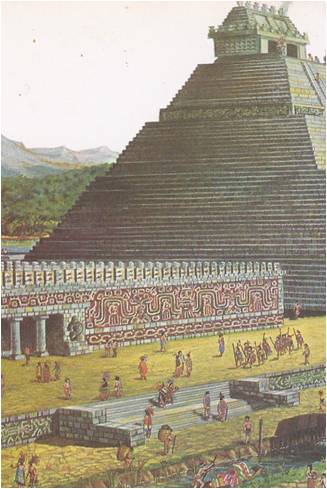DURING THE war, three great empires — the Russian, the Austro-Hungarian and the German –had vanished forever. Then, by the Treaty of Sévres, a fourth empire, the Ottoman, was quietly put to death. Turkey was confined to Asia Minor and became a republic. Of its former possessions, the League of Nations assigned Syria and Lebanon to France and Palestine and Iraq to Great Britain. Trans-Jordan and Saudi Arabia, which had fought the Turks under an adventurous British colonel named T. E. Lawrence, became independent kingdoms. In Europe, there were seven new states: Finland, Estonia, Latvia, Lithuania, Poland, Czechoslovakia and Yugoslavia. …
Read More »Tag Archives: Massachusetts
A House Divided 1833 – 1859
BEFORE ELI Whitney invented the cotton gin, Southern plantation owners were beginning to wonder if they should not give up their slaves. There was a good market for cotton; the English were buying all the cotton they could get to make into cloth in their new factories. It took too long to separate raw cotton from the seed and raising cotton simply did not pay. If the plantation owners stopped raising cotton, they would really have no need for slaves. Then after the invention of the cotton gin, raising cotton began to pay — and pay well! Cotton became the …
Read More »The Final Break 1776
The fog was lifting over New York early on the morning of June 29, 1776, when a man named Daniel McCurtin happened to glance out over the bay. At first he saw nothing but mist hanging low over the water then suddenly he blinked and stared in amazement. Later he tried to describe the scene. He wrote that he had “spied as I peeped out the Bay something resembling a wood of pine trees trimmed. I declare, at my noticing this, that I could not believe my eyes, but keeping my eyes fixed at the very spot, judge you of …
Read More »A Divided Country 1776
One chilly morning in April, General Howe stepped out of his Boston headquarters and stared in amazement at a hill called Dorchester Heights, to the south of the city. It had been fortified during the night by George Washington’s rebel army. Strong breastworks of ice blocks and brown earth ran along the crest of the bill. Above the steepest slopes, barrels filled with rocks stood balanced, ready to be sent tumbling down the hill in the path of attacking troops. Studying the hill through his glass, Howe could make out several companies of riflemen and some units with muskets. What …
Read More »War Begins on Lexington Green 1775
On the evening of April 18, 1775, Paul Revere quietly made his way through the dark streets of Boston to the Charles River. At the river’s edge he hid in the shadows, watching and waiting. He kept a sharp lookout for British patrols. Spies had brought the patriots word that the British were to launch a surprise attack; Revere, William Dawes and other members of the Sons of Liberty had made careful plans to warn the countryside. There could be no doubt that something was about to happen. Several days earlier, eight hundred of the best troops stationed in Boston …
Read More »The Continental Congress 1774
When Samuel Adams, his cousin John Adams and the rest of the delegates from Massachusetts arrived in Philadelphia, they found themselves very unpopular. Cousin John complained that he was avoided as if he had some sort of contagious disease. The delegates from other colonies looked upon the men from Massachusetts as radicals and did not like their wild ideas about protecting American rights with force, if necessary. Patrick Henry of Virginia made a speech pointing out that it was no longer possible for any of the colonies to stand alone. They had to unite, to work together with other colonies …
Read More »The Stamp Act, 1765 – 1772
Another unpopular step England took after the war was to reorganize her defense system in the colonies. The French and Indian War had proved to the British that the colonies could not be depended upon to defend themselves. Some new system had to be worked out in North America, to defend not only the colonies, but also Canada, Florida and the wilderness east of the Mississippi. England decided to leave this task to a standing army of ten thousand British redcoats. Such an army would cost a great deal of money. Taxpayers in England were already paying very high taxes …
Read More »American Revolution – Trouble in Boston 1770
EVEN AFTER IT HAPPENED, few people in colonial Boston knew the boy’s name. He was just a barber’s helper, but everyone heard about him on the night of the trouble. On that night he set off an angry mob by pointing his finger at a British guard and the violence that followed became a famous incident in American history. The date was March 5, 1770. Boston was then occupied by British troops. The troops had been brought in to keep order and to force the people to pay taxes they did not want to pay. The people of Boston hated …
Read More »Adventures in the New World 1519 – 1620
“I DID NOT come to till the soil like a peasant,” said Hernando Cortez. “I came to find gold.” His words echoed the thoughts of almost every Spaniard in the New World. The discovery of the sea route to the West had set off a great treasure hunt. Colonizing and slaughtering, building and plundering, the gold-hungry Spaniards won a Spanish Empire of the West. Conquistadores‚ they were called — the conquerors. None of the treasure-hunters was more cunning or ambitious than Hernando Cortez‚ who came to the island of Hispaniola in 1504. It was not until 1519 that the governor …
Read More »







